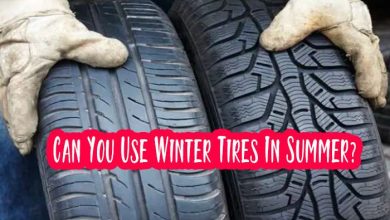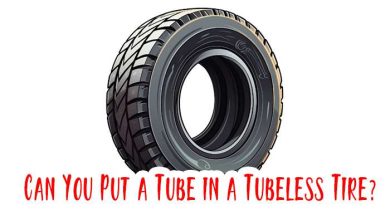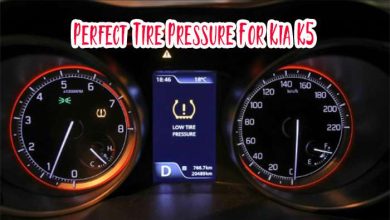Can I Put Wider Tires on My Stock Rims? Your Ultimate Guide
Hey there, fellow tire enthusiasts! You’ve come to the right place if you’re wondering whether you can put wider tires on your stock rims. I’m here to break it down for you and provide some expert advice on this tire-transforming journey.
We’ll explore the benefits, risks, and all the essential considerations regarding tire and rim sizing. So, let’s roll!
Yes, you can put wider tires on your stock rims, but it’s important to make sure that they fit safely and won’t rub. Consult with a tire expert for more advice.
Benefits of Wider Tires
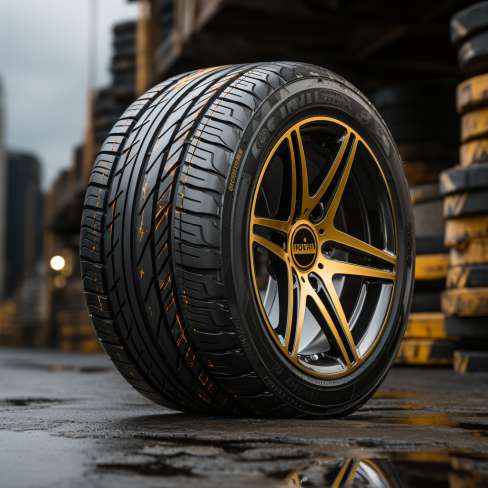
Wider tires offer a range of advantages that can enhance your driving experience:
1. Improved Traction
One of the key benefits of wider tires is improved traction. They have a larger contact patch with the road, which means better grip, especially in challenging road conditions. Whether you’re navigating through rain, snow, or off-road terrain, wider tires have your back.
2. Enhanced Cornering Stability
Wider tires provide better cornering stability. They distribute the vehicle’s weight more evenly, reducing body roll when taking those tight turns. This adds to your safety and makes your ride more enjoyable.
3. Aesthetic Appeal
Let’s not forget the aesthetics! Wider tires give your vehicle a more aggressive and stylish look. It’s a simple way to boost your car’s curb appeal and turn heads on the road.
Read Also: Can You Put a Tire on a Bent Rim?
4. Increased Load-Carrying Capacity
Wider tires often have a higher load-carrying capacity for those who use their vehicles for heavy-duty tasks. This means you can transport more without compromising safety.
Risks and Considerations
While wider tires sound tempting, it’s crucial to consider the potential risks and challenges:
1. Rubbing Issues
Fitting wider tires might cause rubbing against the wheel well or suspension components. This can damage the tires, affect your vehicle’s performance, and compromise safety.
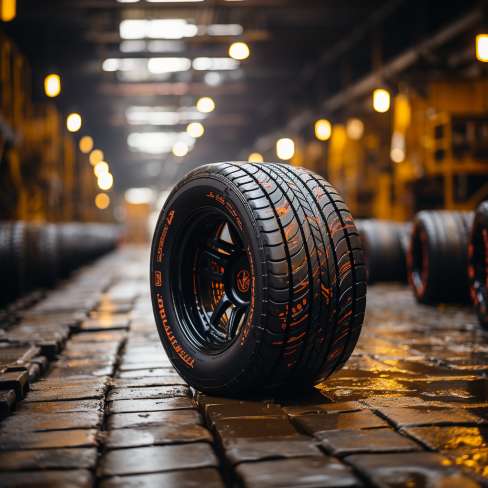
2. Speedometer and Odometer Accuracy
Wider tires can lead to inaccurate speedometer and odometer readings. This can impact your driving experience and any warranties tied to your vehicle.
3. Fuel Efficiency
Wider tires typically have higher rolling resistance, which can result in reduced fuel efficiency. Be prepared for potential changes in your gas mileage.
4. Suspension Modifications
Sometimes, you might need to modify your vehicle’s suspension to accommodate wider tires. This can add to the overall cost of the upgrade.
Read Also: Why Did My Tire Come Off the Rim?
Matching Tire Width to Rim Width
The key to a successful wider tire installation is ensuring that the tire width matches the rim width. This compatibility is essential for both safety and performance.
In general, the recommended tire width for a given rim width is as follows:
- Narrow Rims: Choose tires slightly narrower than your rim for better stability.
- Wide Rims: Opt for wider tires to maximize traction and handling.
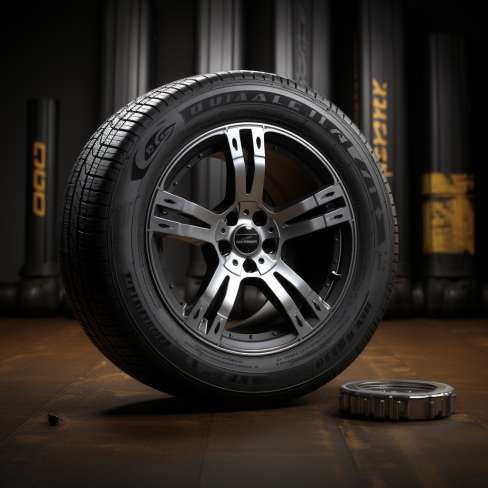
Tire Width and Vehicle Type
The type of vehicle you drive also plays a significant role in the decision to put wider tires on your stock rims:
1. Passenger Cars
Increasing tire width within manufacturer-recommended limits for most passenger cars is usually safe and provides the benefits mentioned earlier.
2. SUVs and Trucks
Due to their larger wheel wells, SUVs and trucks can often accommodate wider tires. However, ensure that your chosen tires match your vehicle’s specifications.
3. Sports Cars
Sports cars often come with wider tires for improved handling. Consult your vehicle’s manual or a tire expert to explore safe upgrades.
Read more: Can I Leave My Car Parked With A Flat Tire?
Can I Put Wider Tires on My Stock Rims?
Can I Put Wider Tires on My Stock Rims? Yes, you can put wider tires on your stock rims, but there are a few things to keep in mind:
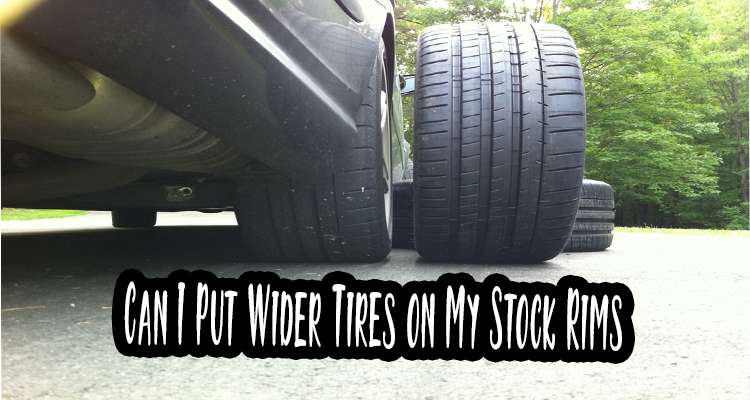
- The tire should not be wider than the rim by over 20 millimeters. This is because the tire can bulge out and rub against the fender wells, suspension components, or other vehicle parts.
- The tire’s aspect ratio (sidewall height) may need to be adjusted to maintain the same overall diameter as the stock tires. This is because a wider tire will have a taller sidewall to maintain the same load capacity.
- You may need to adjust your wheel alignment after installing wider tires. This is because the wider tires will have a different contact patch with the road, which can affect the steering and handling of the vehicle.
If you are unsure whether or not a wider tire will fit on your stock rims, it is always best to consult a tire professional.
Here are some specific examples of wider tires that may fit on stock rims:
- If you have stock 225/45R17 tires, you could install 235/45R17 tires.
- If you have stock 245/40R18 tires, you could install 255/40R18 tires.
- If you have stock 265/35R20 tires, you could install 275/35R20 tires.
Frequently Asked Questions (FAQs)
How do I know if my stock rims can accommodate wider tires?
Start by checking your vehicle’s manual for recommended tire and rim sizes. If you’re uncertain, consult a tire professional who can assess your rims and recommend the best options for your vehicle.
Can I change my tire size without affecting my vehicle’s warranty?
Changing your tire size may affect your vehicle’s warranty, as it can impact the speedometer and odometer accuracy. It’s essential to consult your vehicle manufacturer and dealership to understand the implications for your specific warranty.
Are there any legal restrictions on changing tire size?
Legal restrictions on changing tire size vary by location. Some regions have regulations regarding tire width, tread depth, and more. Always research local laws and consult a professional to ensure you comply.
Can I put 245 tires on 225 rims?
Putting 245 tires on 225 rims is generally not recommended, as the width difference is substantial and may lead to rubbing issues. Consult a tire professional to find your vehicle’s best tire and rim combination.
Conclusion
Fitting wider tires on your stock rims can be a fantastic upgrade if done correctly. It provides numerous benefits, but it’s essential to consider the potential risks and ensure compatibility with your vehicle. Always consult a professional for guidance; remember that safety should be your top priority.
Source:
https://www.goldeagle.com/tips-tools/how-do-i-safely-upsize-the-wheels-on-my-car/
